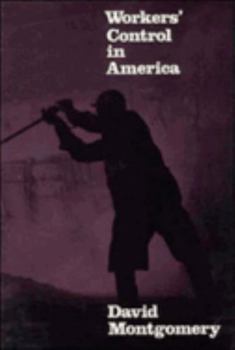Workers' Control in America: Studies in the History of Work, Technology, and Labor Struggles
Select Format
Select Condition 
Book Overview
A collection of essays on workers' efforts in the 19th and 20th centuries to assert control over the processes of production in US. It describes the development of management techniques and includes discussions of various worker and union responses to unemployment.
Format:Paperback
Language:English
ISBN:0521280060
ISBN13:9780521280068
Release Date:August 1980
Publisher:Cambridge University Press
Length:200 Pages
Weight:0.70 lbs.
Dimensions:0.6" x 6.0" x 9.0"
Customer Reviews
1 rating
A Contemporary Classic
Published by Thriftbooks.com User , 18 years ago
This is a wonderful book on the breakdown of workers control over both the shop floor and the production process in the United States. The story begins in the post-civil war era when skilled/craft produciton still held sway. Via the influence of craft unions (most notably Gompers' American Federation of Labor and its numerous national unions) workers in many industries (Montgomery focuses heavily on machinists here) were able to hold great influence over the production process. Due to their high level of skill, and knowledge of their craft - generated a kind of structural leverage - craft unions were able to develop "cooperative" relationship with captial. However, between the 1880s and the 1900s increasing capital competition led to an employer offensive on worker's influece of the production process as a means of reducing costs, gaining control over the workplace, and augmenting profits. Their main aim was then to take the knowledge of the produciton process that the workers possessed and rationalize it - that is break it down into simple units, deskilling the particular work of the given craft...and the story goes on. This is a higly recommended piece of labor history, one that would be well read in addition to Harry Braverman's "Labor and Monopoly Capital."





